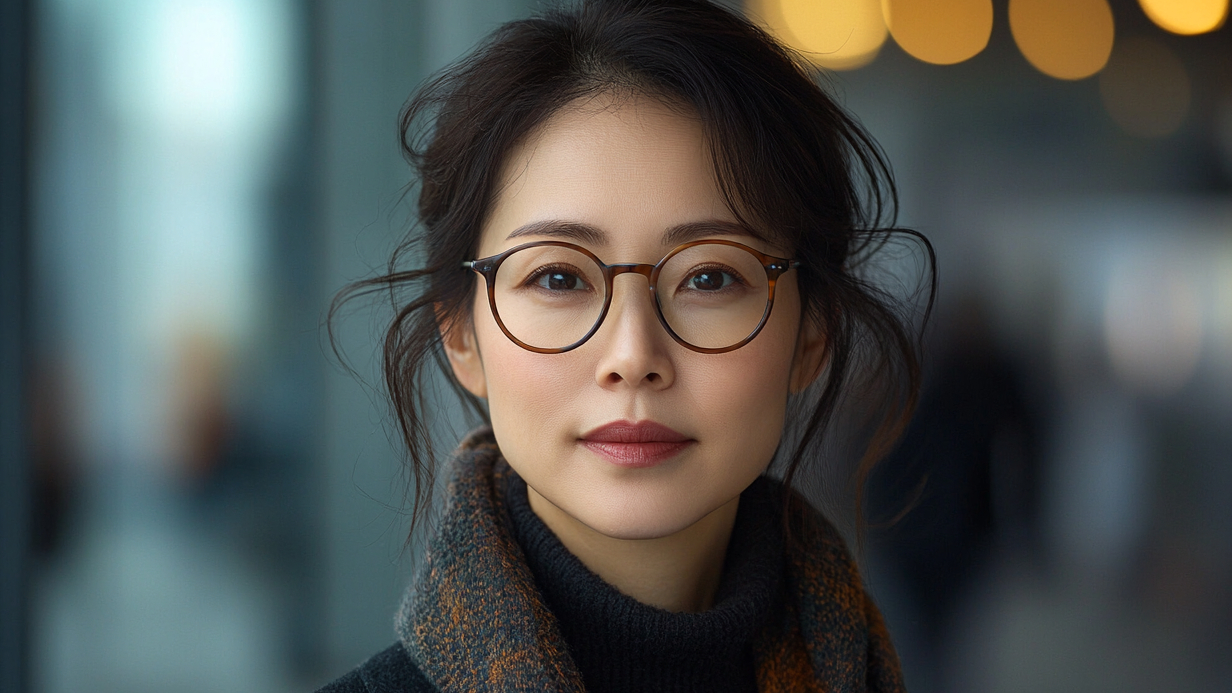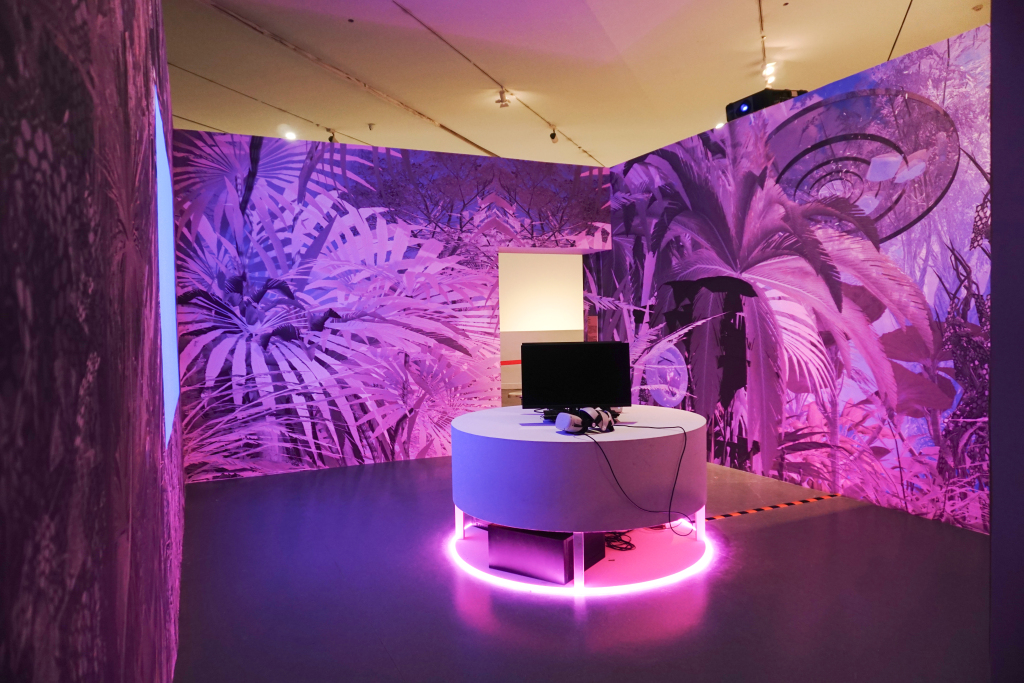

“Hello, I’m Cary, a screenwriting tutor at the Vancouver Film School in Shanghai. My job is to help first-year students tell a complete story with a one-page silent script under strict creative guidelines. But don’t worry, I will never write a single word for them.”
This is the self-introduction of Cary, the AI intelligent film and television teaching assistant, a "new employee" of Shanghai Vancouver Film School. This "new employee" has access to the domestic high-performance large model DeepSeek R1, and has deeply studied Vancouver Film School's ten years of teaching experience in the North American film industrialization system and the needs of students' film and television creation, and has made special optimizations for students' creative difficulties. She is not only the school's first "AI employee", but also the first "artificial intelligence teaching assistant" in China built according to international film industry standards.

Cary's Self-introduction
Letting AI based on big data teach humans to create, is it a technological booster that ignites creative inspiration, or a routine tool that limits artistic inspiration? The reporter visited Wen Ying as soon as possible and "interviewed" this special new employee and "her" "teaching teacher."
Just ask questions, never give answers
Cary was "trained" by Odet, the head of the AI Future Image Research Center of the Shanghai Vancouver Film School. Odet gave her the following "personality": Elizabeth Cary is a British poet, playwright, translator and historian; she is the first known woman to write and publish an original play in English: The Tragedy of Marian; from a very young age, she was regarded by her contemporaries as a versatile scholar.

Odet, Director of AI Future Imaging Research Center at Shanghai Vancouver Film School
At the Vancouver Film School, Cary is responsible for guiding the script writing assignments of students majoring in playwriting in the first semester. In this course that strictly follows the teaching and training system of the North American Hollywood film industry, the first semester course has a step-by-step standard for beginners. For example, in the first semester, students are required to write a single-scene, dialogue-free, and theme-specific script. No smoking, no action scenes of chasing and fighting, no science fiction or fantasy settings, no additional art set costs... AI is programmed to fully understand all T1 script restrictions, including details such as script length, dialogue restrictions, prohibited elements, role requirements, and locations.
By comparing and observing, we can find that when dealing with the same problem, Deepseek will give a direct answer, while the trained Cary will constantly ask inspiring questions:
"We understand that the initial stages of filmmaking can be daunting. Students are faced with a number of constraints, and traditionally, teachers spend a lot of time reminding students of these constraints and getting them back on track, which often requires multiple rewrites."
Odet said that in the past, students might just write a story every week and wait for a limited time to discuss it with the teacher once a week. "Now when they find a teacher, they have already had a lot of conversations with the AI teacher and have better script elements." A significant difference is that when Cary goes online, other teachers will also give feedback to Odet. "Usually in the first opening meeting, everyone will have different degrees of 'overstepping the line', but now we can move on to the next step more efficiently."
On the day of the interview, Teacher Odet assigned the reporter the same homework as giving homework to students, asking him to come up with a short story that takes place in a single scene and ask Cary for advice.
“I want to write a story that takes place in a bathroom, but where should I start?”

Cary's playwriting advice
Cary told the questioner that the toilet is a space full of privacy and tension, which is very suitable for telling stories with visual language. He further guided the questioner to conceive various aspects such as characters, motivations, and environmental details. As each question went deeper, Cary continued to ask questions to guide the questioner to further think about and explore the potential of the story.
Odet introduced that Cary's system prompts have been carefully debugged to avoid giving direct answers or specific result solutions like general large model platforms. Instead, it is like a teacher who guides students step by step by asking inspiring open-ended questions.
“Unlike traditional AI tools that often generate content directly, our assistant focuses on fostering students’ creativity through thoughtful guidance and insightful questions. We leveraged the power of prompt engineering to ensure the AI acts as a collaborative partner, guiding students to brainstorm, craft compelling characters, and create visually driven narratives within the tight constraints of their first short film project.”
At the same time, AI prompts students to think in cinematic terms, emphasizing the importance of shot size, camera angles, and character movements in conveying emotion and narrative without the use of dialogue.
"She doesn't really write anything. She just asks you questions, is this okay? Is that okay? She should inspire your imagination. Because one of the obstacles to writing is that it's hard to think of new things." At the same time, given that Deepseek is very familiar with all the classic movies in the world and has read a large number of movie scripts, you can also discuss movie knowledge with it endlessly. This in itself goes beyond the help that a specific teacher can give to students.
Odet mentioned that students have different personalities, and not every student can actively discuss their problems with the teacher, especially some shy students. Cary is a 24-hour online teaching assistant.

Cary is a 24-hour online teaching assistant
When using AI, it is more important to change your mindset
Last year, Shanghai Vancouver Film School announced the establishment of the AI Future Image Innovation and Research Center at the 10th anniversary celebration of the school, which is committed to promoting the innovative exploration and practical transformation of new generation information technologies such as artificial intelligence, virtual production, and immersive interaction in the film and television field. Relying on the school's disciplinary advantages in film production, visual media sound design, film and television modeling design, 3D animation and visual effects, game design and other majors, the center actively builds cross-disciplinary innovative industrial projects through an interdisciplinary collaborative mechanism, deeply integrates North American film and television industry standards and local industry resources, creates an integrated innovation platform for industry, academia and research, and empowers the school's talent training.
Students have been learning AI courses and making movies with AI tools for two years. According to teachers from the college, before students start their professional studies, the AI course will take them to learn various AI tools. "Whether it is AI tools for video, pictures, sound, or screenwriting, they will be familiar with some of the more common AI tools on the market, and create a short film mainly generated by AI, so that they can practice using this tool proficiently."
Teacher Odet has been exploring AI tools for film and television since three years ago. "I have to spend three hours a day reading, watching, and checking newspapers to get the latest news. I have tried almost all AI tools on the market, and sometimes I feel exhausted." She also admitted that recent AI developments have given more and more surprises. "The more we learn, especially in education, the more we know how to use them to create tools that help children learn better. I think this will be a new world."
Not everyone is as open to new things as Odet. "But when AI is good enough, you can't refuse it. Last year, many people were still on the sidelines, but this year, everyone knows that they have to get on this train."
Odet showed reporters the backend of his teaching system. In addition to Cary who has already taken up his post, several other new teachers will be online soon. Story analysts can help students disassemble the script structure of classic movies and point out problems for newly created stories; proposal masters can give suggestions on the direction of proposals based on the scripts, helping students better showcase their creativity in film festival venture capital and other links. There is also teacher Odet's personal assistant, who can help students monitor their use of AI to assist in completing their creations. In addition, when faced with the task of group shooting in the academy, the AI assistant can transform into a production project manager. "When I copy a class's student list, it will help me divide it into groups based on gender and expertise for management. Each group needs a balance of men and women, and needs to have backgrounds in different majors. This used to take up a lot of teachers' time, but now AI can do it efficiently."

Odet talks to AI
It doesn't take long to train each teaching assistant, and some even only take a few hours. In Odet's view, AI has truly changed the way people work, and behind this, what needs to be changed is the inherent mindset. "It's important that you know exactly what you need it for?" Odet said that this change started when he began to come into contact with "prompt engineering". "This is not a simple technology about how to write prompts to get answers, but a completely new mindset. It took me about a month to adapt to this change in mindset, and then everything became very natural."
Is there a conflict in the logic of using AI based on big data to "guide" human creative work? In Odet's opinion, it is not the case. "People are always limited by limited experience, but experience is also the 'big data' that makes up everyone, isn't it? All of us have grown up based on the 'big data' of our own experiences, so AI can help you break your inherent thinking."
Regarding the various voices and debates surrounding AI today, Odet believes that change is happening. Although it will inevitably bring short-term pain to some individuals in the industry, it is still positive for the development of the entire industry.
"The film industry has become a precarious industry worldwide. It is too expensive and increasingly unaffordable, and no one is willing to take risks. It is increasingly difficult for young creators to get opportunities. It is very difficult to come up with so much money to start a project with a few million. Now technology allows young people to realize their creativity without having to get huge amounts of help." Odet believes, "Although AI will replace many jobs, it will definitely create many job opportunities. Change is bound to happen, and we must adapt and change.
Wenying said that in the future, the academy will also launch exclusive teaching assistants tailored for various majors and courses. Photography AI, director AI, production AI and other series of assistants will be launched one after another, so that AI can truly integrate into the entire scene of film and television education. From basic creation in the T1 semester to complex projects in the graduation season, students of all majors can obtain full empowerment from personalized AI creative partners, realize dynamic calibration of teaching standards and industry needs, and create a closed loop of professional ability growth from classroom to set, from enrollment to entry into the industry.


